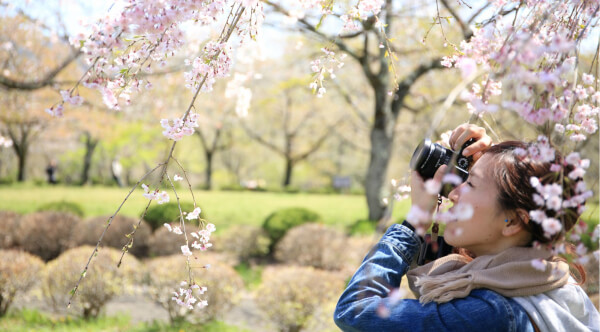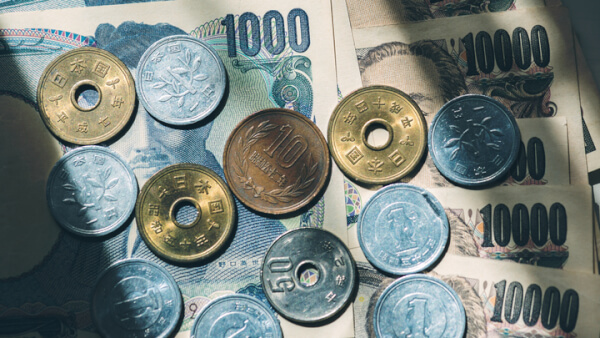Vaccinations for Japan: What you should know before you go
Japan is generally viewed as a medically-safe location for tourists with high-quality medical care. If you’re visiting Japan for a holiday or short-term...

Just under 10 hours direct flying time from Australia, Japan is a much-loved travel destination for many Aussies with more than half a million of them landing in Japan in 2022 alone.¹
If you’ve never been but Japan is at the top of your travel bucket list, this guide will help you prepare for your next adventure. Delving into visas, vaccines, currency, must-sees, safety and more, you’ll be ready to enjoy the endless discoveries and rich culture Japan has to offer.
| 💸 Hold 40+ currencies in your account and spend at the mid-market exchange rate with the Wise card while abroad. |
|---|
Learn more about the
Wise Account
Any Australian or Australian resident entering Japan needs to meet its basic entry requirements. This means you will need:²
While Australian citizens can travel to Japan visa-free for up to 90 days, permanent residents of Australia may require a visa depending on their passport country.²
If you are an Australian resident it is advised to check if your passport is from a visa-exempt country well in advance of travel so that a visa can be arranged if necessary.
Clearing customs in Japan requires adherence to several different regulations, many of which are similar to the customs rules when arriving in Australia.
You must declare any goods that exceed the permitted allowance and be prepared to pay any duty and/or tax owing on these. This includes alcohol, tobacco products and perfume among other items.³
If you are carrying cash or other means of payment exceeding 1 million Yen, this must also be declared to customs officers. This is roughly equivalent to AUD$10,000 based on today’s mid-market exchange rate used by Wise.
Some goods are not prohibited or restricted from being imported to Japan. This includes³:
It should be noted that Japan also enforces strict rules regarding any medication brought into the country, some ingredients in ADHD and cold and flu medication may not be legal. The Japanese Ministry of Health, Labour and Welfare Ordinance can give further guidance regarding this if you need to travel with medication.⁴
If you are an Australian resident holding a passport from a non-exempt country, you can apply for a single-entry tourist visa with your closest Japanese embassy or consulate.⁵
Whether you must attend in person or submit your application via post can vary depending on where you live, so we advise speaking with your chosen embassy for advice.
To apply, you will need⁵:
The cost to apply for a single-entry tourist visa as an Australian resident in 2024 is AUD$32. Visa fees are reviewed annually on the 1st of April and are subject to change.⁶
Currently, Japan does not require visitors to have specific vaccinations or hold proof of these for entry.
While during the COVID-19 pandemic, a negative PCR test and proof of vaccination were introduced, this requirement was rescinded in April 2023.²
Getting to Japan from Australia is quite straightforward with direct flights available from several major cities. While some airlines fly this route daily, others may only do so from certain cities on select days.
Direct travel time is typically between 8 to 10 hours if departing from the East Coast and up to 13 hours if flying in from Perth or Adelaide.
The below table shows major airlines that fly from Australia directly to Japan’s capital city, Tokyo and from which cities you can depart.
| Airlines | Departure Cities |
|---|---|
| Virgin Australia | Sydney, Brisbane, Melbourne, Adelaide, Cairns, Perth, Gold Coast |
| Jetstar | Brisbane, Cairns |
| Qantas | Sydney, Brisbane, Melbourne |
| Japan Airlines (JAL) | Sydney, Melbourne |
As seen on 06 June 2024
Indirect flights are also available with other airlines, however, travel will involve a stopover and therefore extend your total travel time.
Departure cities, frequency of flights and travel duration are subject to change. Please review flight options directly with your chosen airline before planning your trip.
The currency used in Japan is the Japanese Yen (JPY/¥). At the time of writing, based on the mid-market exchange rate used by Wise, AUD$1.00 is equivalent to JPY¥103.70.
Cash, credit and debit cards issued by major Australian banks are generally accepted payment methods in Japan. Pre-paid travel money cards and non-bank debit cards such as the Wise card are also accepted wherever you see the Visa or Mastercard logo.
Cash is often preferred for payments in Japan, especially at smaller businesses, so travelling with a mixture of cash and cards is advisable.
Additionally, contactless payments such as tap-n-go or paywave are not yet widespread in Japan, so be sure to keep your physical cards with you rather than relying on a digital version.
English is not widely spoken in Japan with recent data indicating that less than 20-30% of the population speaks it with a high degree of fluency.⁷ This represents a great opportunity to learn some Japanese phrases for travel and engage with locals in their own language.
While this may make you feel worried about navigating your way around, it shouldn't be a major concern.
Street signage and signs in train stations or similar are typically posted in both Japanese and English and major hotels and restaurants will have English speaking staff and menus.
To further aid in your easy exploration of Japan, there are some handy mobile apps that are worth downloading, these include:
This app gives you easy access to a detailed and interactive map of the Tokyo subway system. Able to work offline, it ensures easier use of the metro system and facilitates greater confidence in exploring the city.
A Japan specific navigation planner, this app helps you find different travel routes involving trains and planes. By inputting your departure point and intended destination, the app will calculate the best route, fare prices and travel time.
This app gives travellers access to vital safety information including early earthquake warnings, tsunami warnings, volcanic activity and strong weather advisories.
For those times when communication is tricky, this app can help you quickly translate spoken phrases to text from Japanese to English and vice versa.
There is so much to see while in Japan, if you’re limited on time or unsure where to begin, you may like to focus on some of the main tourist spots, namely:
If you’re someone who prefers to stay off the beaten track and hunt down hidden gems in new destinations, we suggest visiting:
Takayama. This is a historic town with a fascinating artistic legacy and a wealth of traditional buildings and little streets to explore.
Koyasan. A tranquil and sacred haven tucked away in nature, Koyasan is home to 100 temples and 600 monks who permit visitors to observe their morning prayers.
Takachiho Gorge, home to Minainotaki Waterfall and the birthplace of several local legends, you can explore the gorge by boat and immerse yourself in its unique charm and interesting history.
Shirakawago, a UNESCO World Heritage site, is located in the picturesque Japanese Alps and is renowned for its collection of 300-year-old traditional Japanese farmhouses.
Okinawa offers pristine beaches and lush sub-tropical jungles to explore as well as access to UNESCO World Heritage sites Tamagusuku and Shuri Castle on the main island. If you’re a martial arts fan, Karate is said to have originated here too.
Good manners and polite consideration of others are highly valued in Japan. In order to avoid annoying or offending the locals, foreign visitors should have an awareness of and follow some basic rules such as:
Interestingly, while noisy eating is considered poor form in Australia, in Japan it is considered a polite sign of enjoyment – so feel free to slurp away at the many noodle bars you come across.
Japan is largely a very safe travel destination with crime mostly limited to petty theft and credit card fraud.⁴
Earthquakes and tsunamis pose greater safety risks, which have significantly affected Japan in recent years. For this reason, the Australian Government Travel Advisory, Smartraveler, advises downloading the NHK World app for up to date information on natural disasters and other emergencies.⁴
Japan is renowned for its extensive and reliable public transport system. This makes it incredibly easy to travel within cities and between them across the length and breadth of Japan.
While taxis and flights can be used to explore, it is widely accepted that rail travel is the best way to get around.
Using a combination of city-specific metro passes and the Japan Rail Pass, which also covers some bus services, you can comfortably and confidently make your way around.
Booked, packed and ready to go? Here are some last things to keep in mind before you travel to Japan.
To speak with your nearest Japanese Embassy or consulate in Australia regarding your travel, you can contact them as follows:
| Embassy | Address | Phone |
|---|---|---|
| Embassy of Japan, Canberra | 112 Empire Circuit, Yarralumla, ACT 2600 | 02 6273 3244 |
| Consulate-General of Japan, Sydney | Level 12 1 O'Connell Street, Sydney, NSW 2000 | 02 9250 1000 |
| Consulate-General of Japan, Brisbane | Level 17, 12 Creek Street, Brisbane, QLD 4000 | 07 3221 5188 |
| Consulate-General of Japan, Melbourne | Level 25, 570 Bourke Street, Melbourne, VIC 3000 | 03 9679 4510 |
| Consulate-General of Japan, Perth | U22/Level 2, 111 Colin St, West Perth, WA 6005 | 08 9480 1800 |
| Consulate-General of Japan, Darwin | Charles Darwin Centre Level 20, 19 Smith Street, Darwin, NT 0800 | 08 8982 5435 |
| Consulate-General of Japan, Adelaide | 5 Elizabeth Cr, Carrickalinga, SA 5204 | 0418 818 466 |
| Consulate-General of Japan, Hobart | 100 Derwent Park Road, Derwent Park, TAS 7009 | 03 6271 1333 |
With a Wise Account you can hold money in 40+ currencies and spend it in 150+ countries. Whenever you exchange currencies it’s done using the mid-market rate with a transparent conversion fee shown upfront.
To make everyday spending easier you can order a Wise Debit card for your Wise Account and generate virtual cards as needed. If you have the local currency in your Wise Account the Wise card will use it for local payments. If you don’t, it uses smart technology to auto-convert your money at the mid-market rate, for a conversion fee.
Join over 16 million customers currently using Wise. It’ll only take a few minutes to register and see what’s inside.
Register your Wise account
in minutes
Please see Terms of Use for your region or visit Wise Fees & Pricing for the most up to date pricing and fee information.
Sources:
Sources checked on: 06 June 2024
*Please see terms of use and product availability for your region or visit Wise fees and pricing for the most up to date pricing and fee information.
This publication is provided for general information purposes and does not constitute legal, tax or other professional advice from Wise Payments Limited or its subsidiaries and its affiliates, and it is not intended as a substitute for obtaining advice from a financial advisor or any other professional.
We make no representations, warranties or guarantees, whether expressed or implied, that the content in the publication is accurate, complete or up to date.

Japan is generally viewed as a medically-safe location for tourists with high-quality medical care. If you’re visiting Japan for a holiday or short-term...

You’ll find international automatic teller machines (ATM) and cash dispensers in more than 20,000 post offices and 10,000 7-Eleven convenience stores across...

Japan’s vibrant cities and peaceful country resorts see it receive an astonishing number of visitors from abroad. In the summer of 2016, over 2 million...